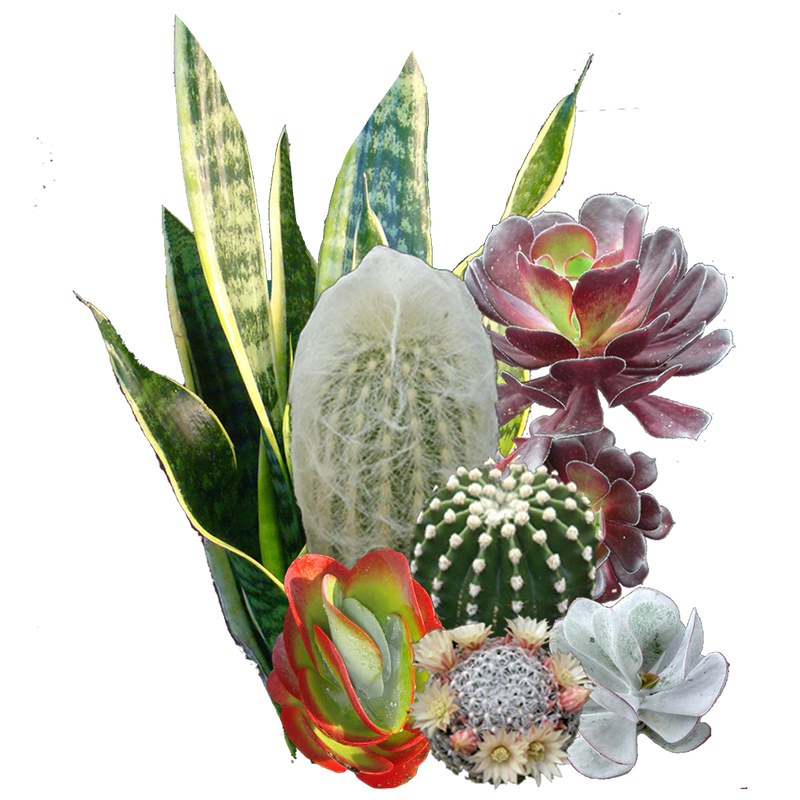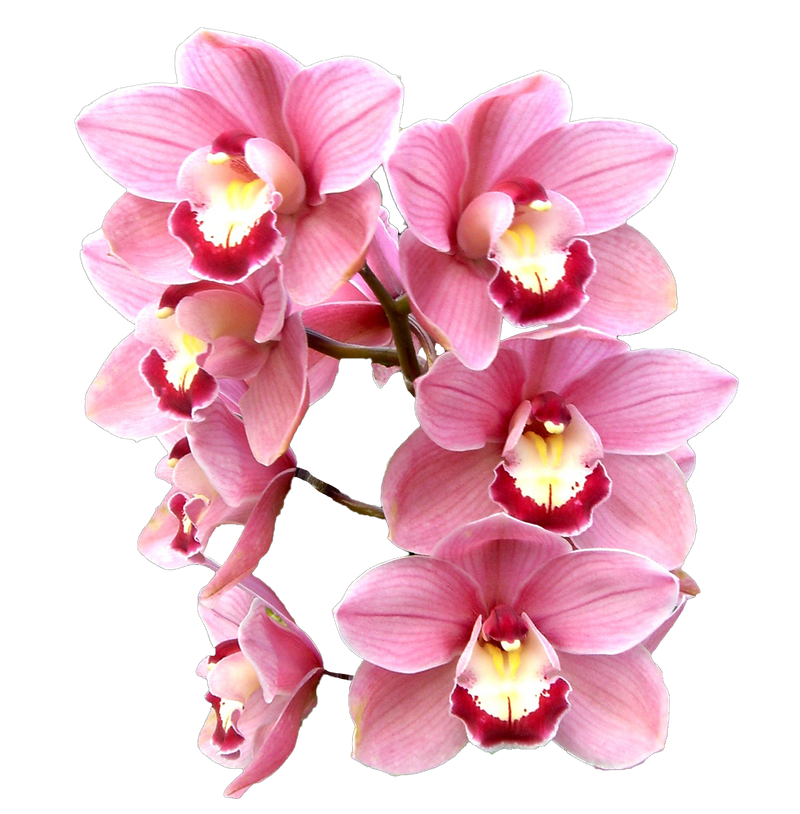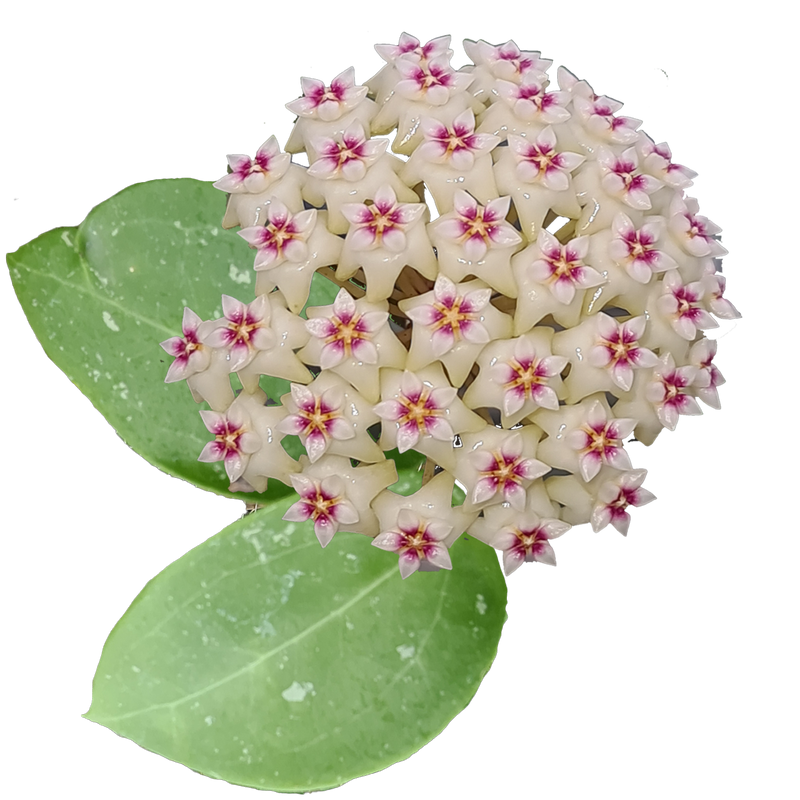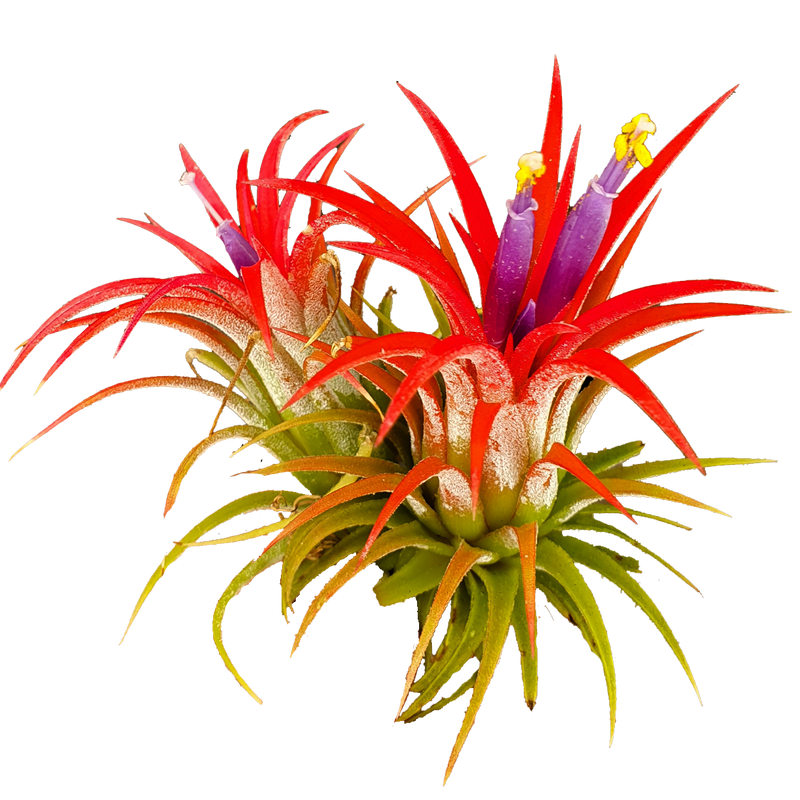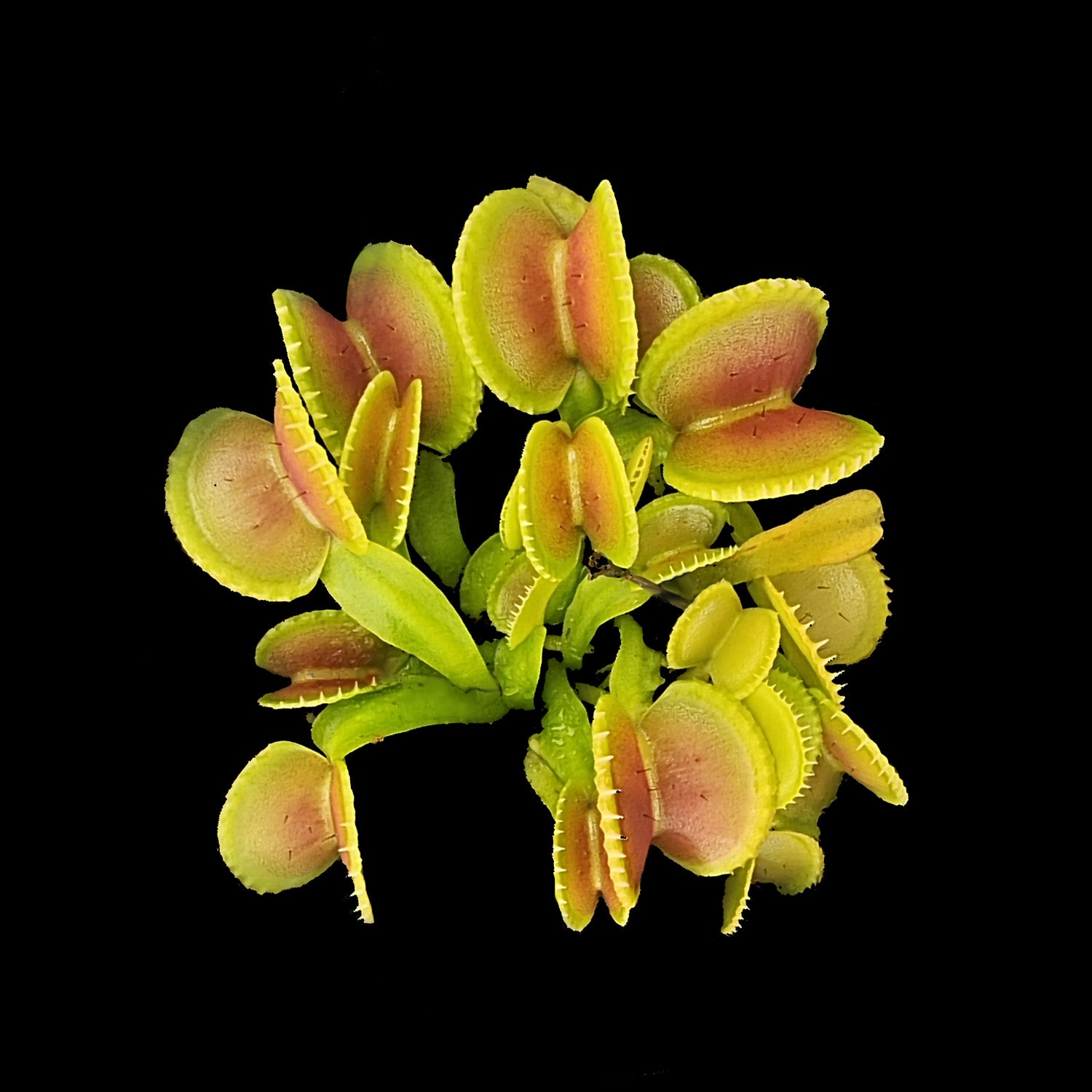
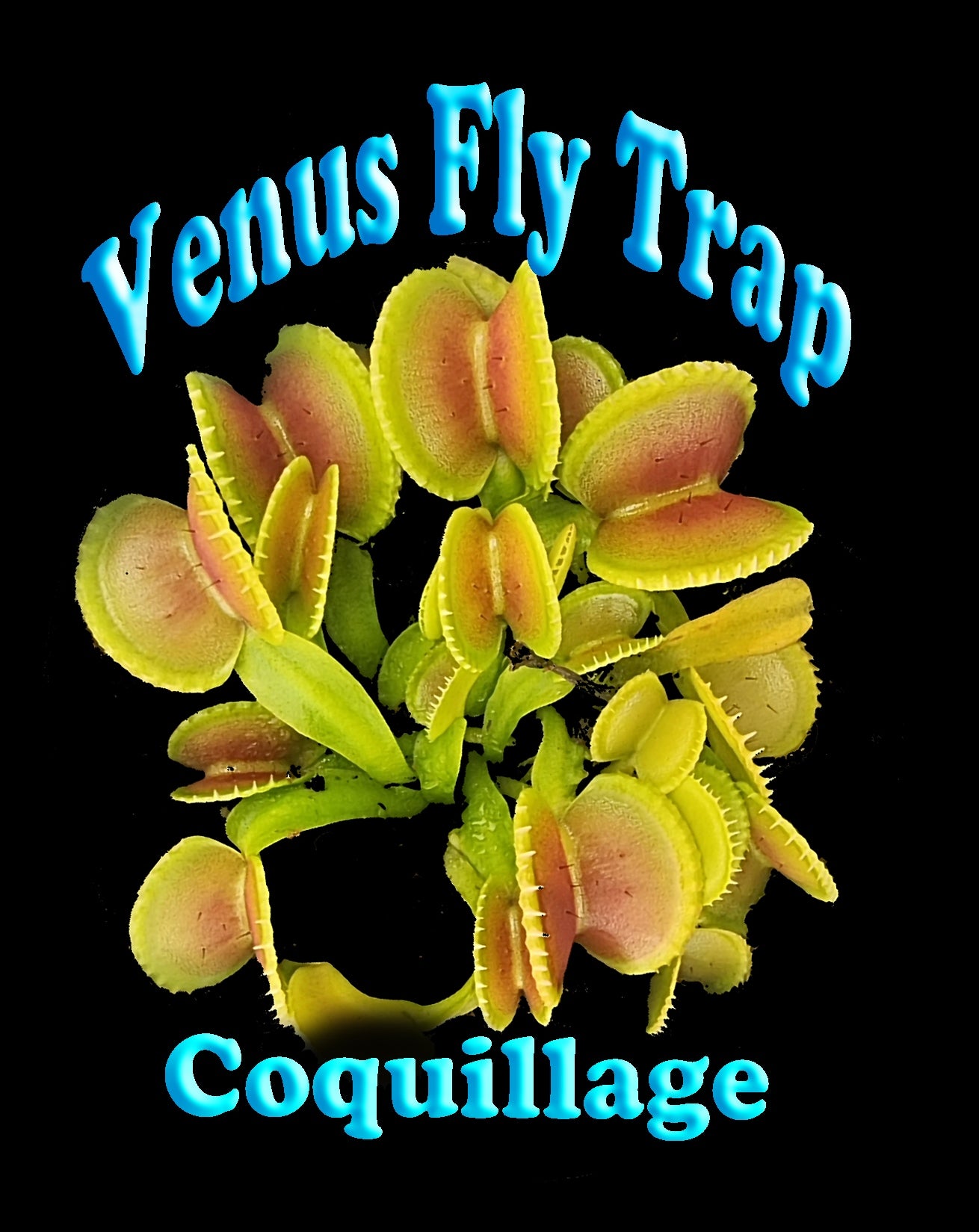
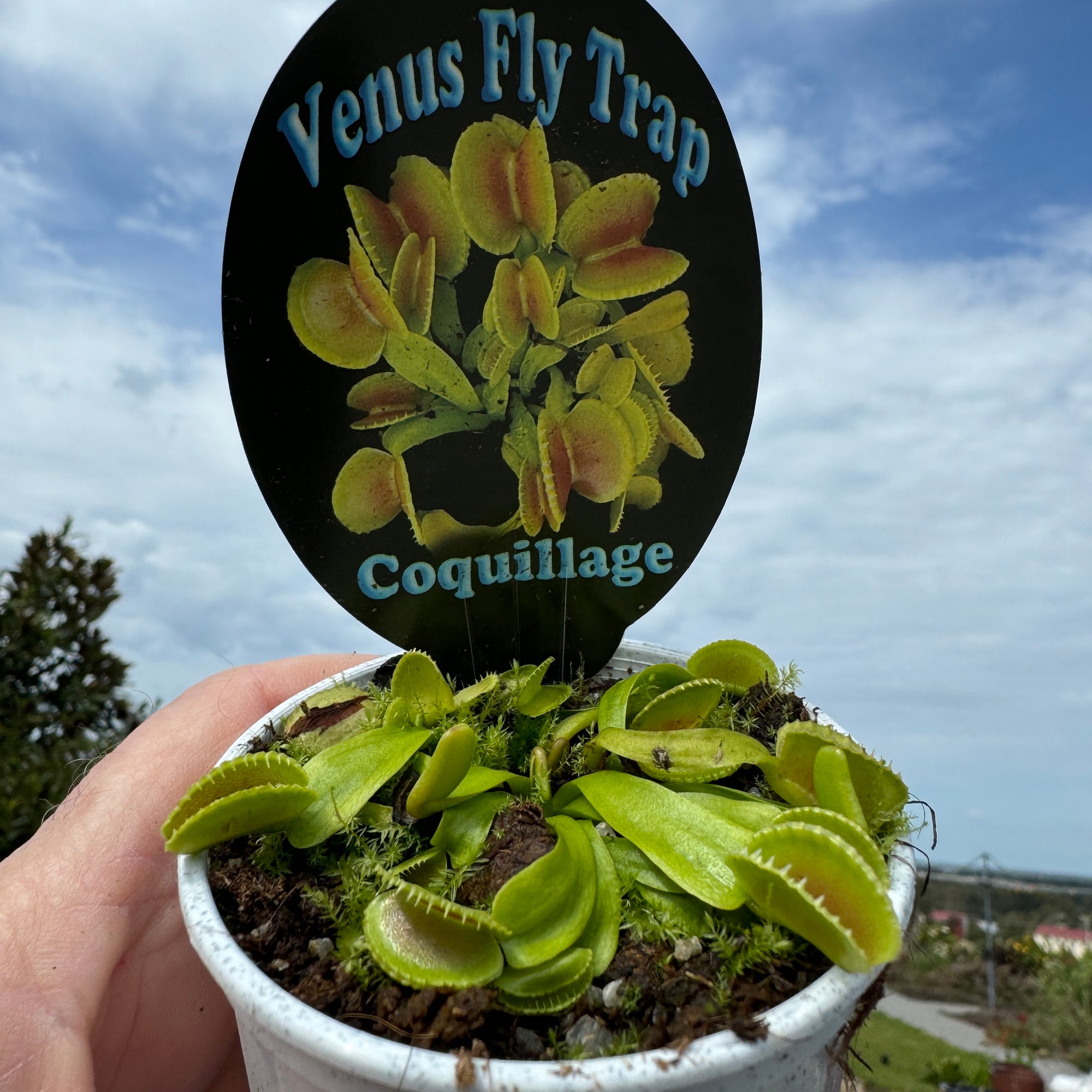
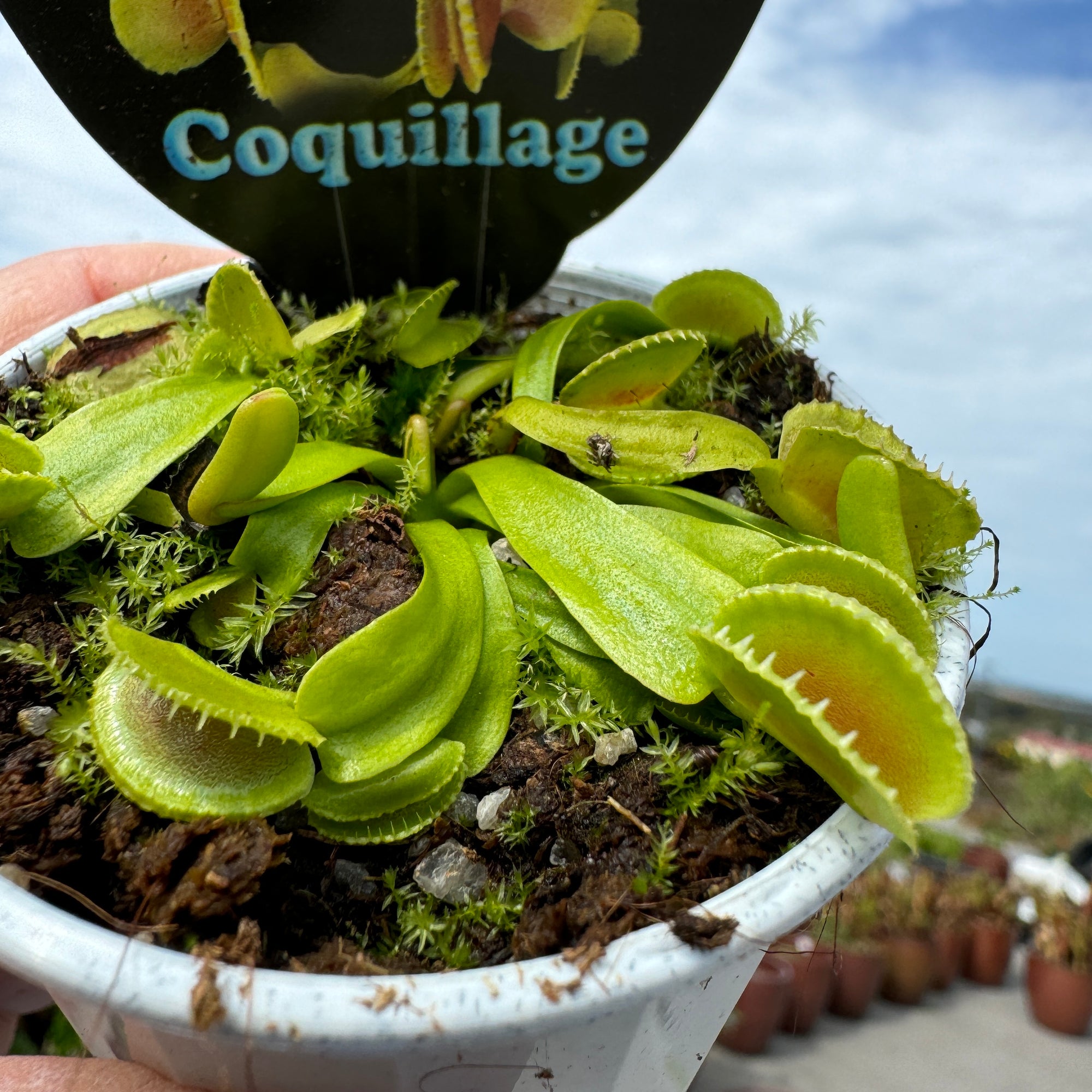

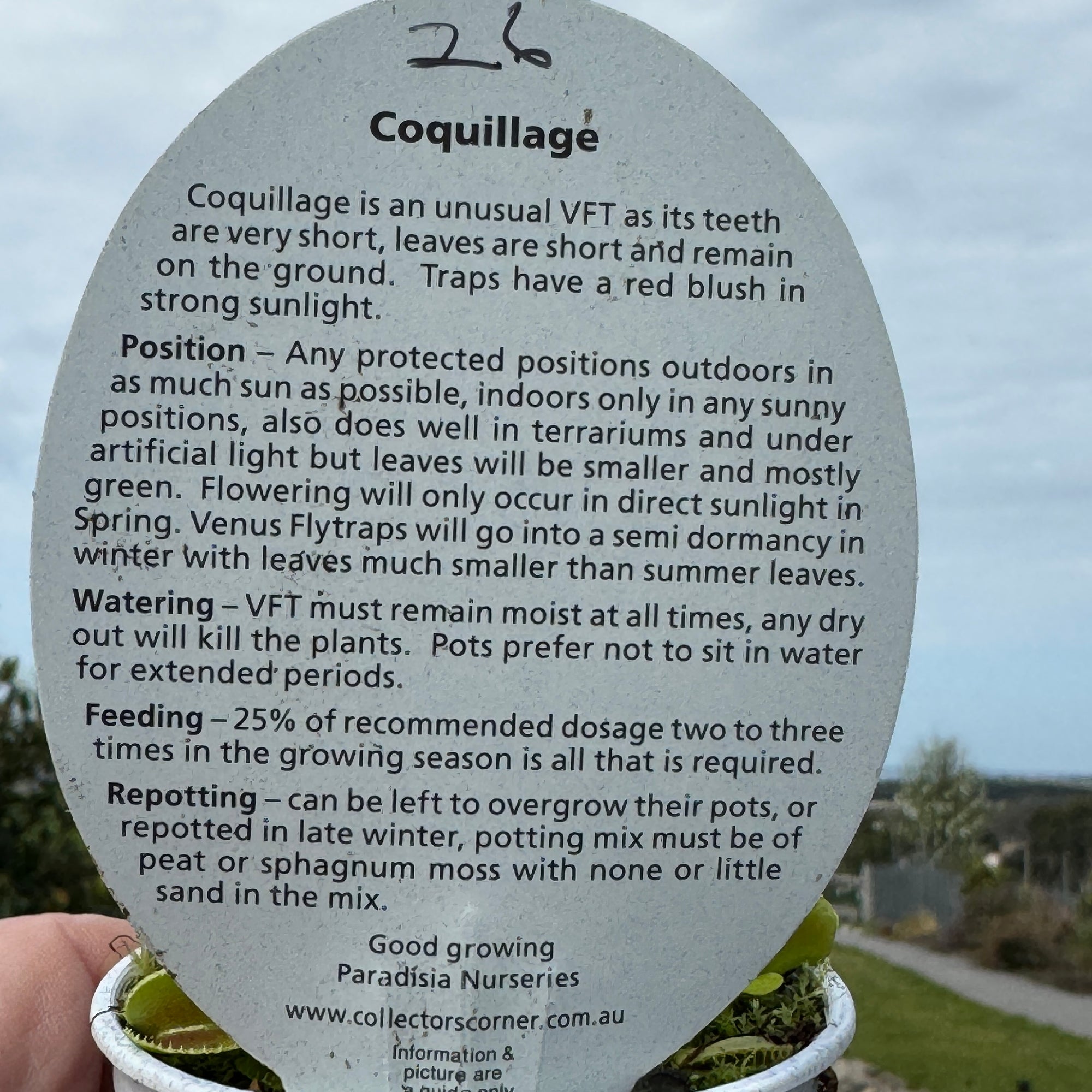
Dionaea muscipula 'Coquillage' - Venus Fly Trap
check_circle In Stock
Embark on a botanical journey with the Dionaea muscipula 'Coquillage', a distinctive cultivar of the celebrated Venus Flytrap. Native to the wetlands of North Carolina, USA, this ground-hugging marvel captivates with its unique combination of features: short teeth, leaves that remain close to the ground, and traps that blush a vibrant red in strong light. Prepare to be enchanted by its unusual morphology and witness the wonders of nature's artistry.
Distinctive Features
- Short Teeth: The 'Coquillage' cultivar is characterized by its unusually short teeth, giving its traps a softer, more delicate appearance compared to other Venus Flytraps.
- Ground-Hugging Leaves: This cultivar's leaves maintain a prostrate (ground-hugging) habit, creating a unique and visually appealing growth pattern.
- Red Blush: When exposed to strong light, the traps of this cultivar develop a captivating red blush, adding a touch of vibrancy to its already intriguing appearance.
Care Tips
- Light: Provide bright indirect light or full sun for at least 6 hours a day to ensure robust growth and vibrant trap colouration. Ample light is essential for the development of the red blush on the traps.
- Water: Keep the soil consistently moist, but not waterlogged. Use distilled water or rainwater to prevent mineral buildup, which can be harmful to this sensitive plant.
- Humidity: As with other Venus Flytrap cultivars, the 'Coquillage' prefers moderate to high humidity levels. Consider using a humidity tray or misting regularly to maintain optimal conditions.
- Temperature: Maintain a temperature range of 20-30°C (68-86°F) during the growing season (spring and summer). In winter, provide a cooler dormancy period at around 5-10°C (41-50°F) to mimic its natural growth cycle.
- Fertiliser: No need for fertiliser! This carnivorous plant derives its nutrients from the insects it captures, making it a fascinating and low-maintenance addition to your plant collection.
- Potting: Repot every 1-2 years in spring using a well-draining, acidic potting mix, such as a mixture of peat moss and perlite. Choose a container that is slightly larger than the previous one to accommodate its growth.
- Propagation: Propagation can be done through division of the rhizome, leaf cuttings, or seed. However, be patient, as it requires some skill and time.
Shipping Schedule and Biosecurity Information
expand_more
Dispatch & Shipping Information
Non-Biosecurity States (QLD, NSW, ACT, VIC, SA): We now offer two dispatches per week for these regions:
- Tuesday Dispatch: Orders placed by Sunday 11:59 PM AEST.
- Friday Dispatch: Orders placed by Wednesday 11:59 PM AEST. Orders placed after these cut-offs will be dispatched on the next available day.
Biosecurity States (WA, NT, TAS): These orders require mandatory biosecurity treatment (PHC) and follow a specific weekly schedule:
- Cut-off: Orders must be placed by Thursday 11:59 PM AEST.
- Dispatch Day: Orders are processed over the weekend and dispatched on Tuesday.
Plant Health Certification (PHC) Fees:
- $20 fee applies to WA orders.
- $10 fee applies to NT and TAS orders. This fee is per order (not per plant) and is included in your shipping costat checkout.
Important Note: We operate independently from Collectors Corner. For any enquiries, please refer to our contact page

Size: 80mm pot










